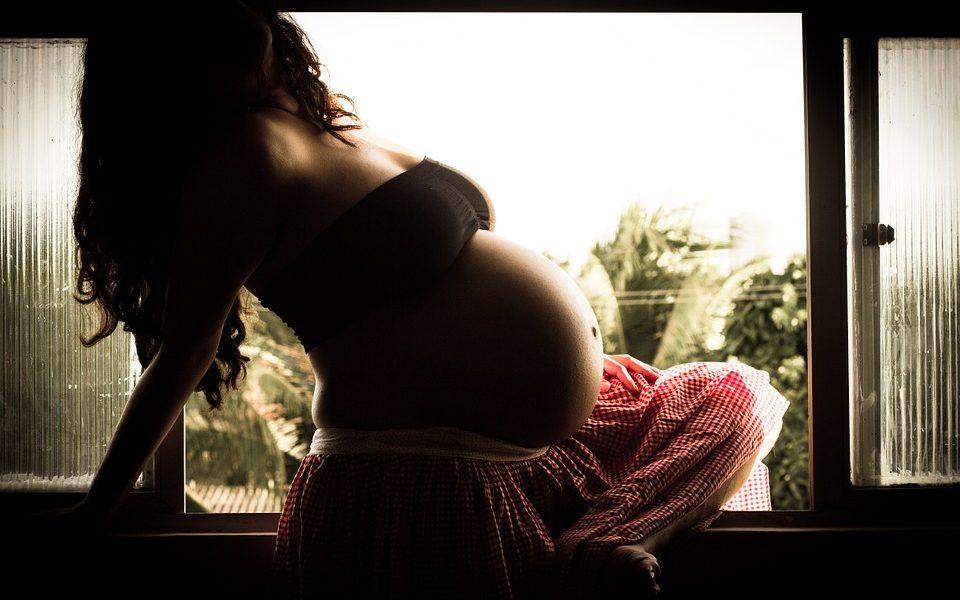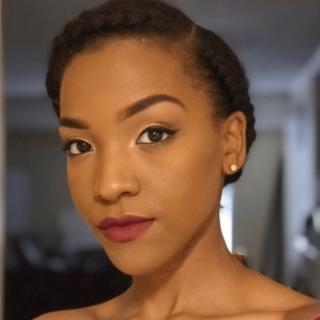In Ancient Greek, “doula” means slave, but for Krystal Divine’Queen, the word signals a return to her ancestral roots of giving birth at home without the use of drugs.
“Birth is seen as something that needs to be medically managed when it’s really something holy, sacred and divine,” Queen says. “Our ancestors had it right. Our oppressors turned us astray.”

Queen first became a mother at 18. She originally wanted to have a home water birth, free of drugs but veered from her plan because of a lack of support, a lack of knowledge about childbirth and a fear of the unknown. She stressed about what could happen if she gave birth naturally and felt overwhelmed by the costs of a home water birth. Still, after having her second child later in life, she decided any future children she would have would be on her own terms. She took control of her third birthing experience by serving as her own birth companion which spawned a desire to not only share her knowledge, but to influence others.
“I chose to become a birth worker because my intentions were to support women and feel as liberated as I did during my birth experience,” she says.

Queen, who lives in Greensboro, isn’t a trained doula but rather a self-taught home-birth companion. Her business, My Indigenous Lifestyle, urges the use of natural and holistic remedies not just through pregnancy and birth, but the entire life. Her company’s motto, “Reclaiming our ancestral roots,” means returning to the way women gave birth before medications were introduced — at home, free of drugs and sitting, squatting or standing instead of lying down.
As a Black woman, Queen recognizes the grave statistics that show Black and brown women at much higher risks for maternal mortality compared to white mothers.
“In 2017 when I found out I had to give birth in the hospital, that is when I found out about Black women being three to four, sometimes three to five times more likely to die than white women when we have a hospital birth,” Queen says.
In a 2020 report from the National Center for Health Statistics containing the first update of information in over a decade, “the maternal mortality rate for 2018 was 17.4 deaths per 100,000 live births, and the rate for non-Hispanic Black women (37.1) was 2.5 to 3.1 times the rates for non-Hispanic white (14.7) and Hispanic (11.8) women.”
For Eboni Allen, these statistics show why there has been an increase in popularity for non-traditional births among women of color.
“I think it’s becoming more popular to the Black and brown communities,” Allen says. “That’s originally where doulas and midwifery started. Now, we’re reclaiming our ancestral history when it comes to birth work.”

Allen, who earned her bachelor’s in biology from UNCG and now resides in Durham, received her doula certification in 2018 and founded My Dear Doula the following year. Earlier this year, she earned her master’s in STEM education from NC State University. She says she fell in love with the birth work after experiencing pressure from hospital doctors to use drugs she was uncomfortable using during birth of her son in 2017.
“They were trying to give me Pitocin after an epidural,” she says. “If I didn’t know the risks associated with Pitocin, I probably would’ve gone with it at that point.”
Pitocin is an oxytocin injection used during labor to induce contractions of the uterus. According to the Food and Drug Administration, adverse reactions reported in the mother after the use of Pitocin include cardiac arrythmia and rupture of the uterus. In the fetus, neonatal jaundice, premature ventricular contractions and other arrhythmias and fetal death can occur.
Allen describes the doctors as “pushy,” saying they insisted using Pitocin and even tried negotiating starting with a lower dose.
“If we don’t know our rights, risks and benefits, we can end up making decisions we wish we hadn’t had we known,” she says. “It made me fall in love with advocation.”
Allen says her clients’ reasons for choosing a doula range from a bad birth experience to hearing how helpful doulas can be.
“They just want that added support of a woman there who does know and has seen birth and could comfort them if any adverse things come up,” she says.

Although she gave birth in the hospital too, Queen encourages home births. However, she says she will attend a hospital birth in the event of an emergency. The one thing she strongly encourages is the baby bonding with the mother as soon as possible so each can become familiar with the other’s hormones.
“It’s hard to have a connection with a nurse,” she claims. “Your body recognizes when you don’t know this person.”
At her business, Queen sets the mood with her energy, turning the birthing experience into a spiritual ritual. If preferred by the mother, she dims the lights. She brings an oil diffuser for aromatherapy, using lavender to reduce stress and sandalwood to calm nerves.
For Allen, her ears have been her biggest help to her clients.
“A lot of women just want someone to listen to them, I’ve found,” she says.
Other times, clients want Allen to tell them what to do. She once had a client with a breech baby debating between having a Caesarean section or external cephalic version, an operation to turn the baby. The client insisted Allen tell her what she would do if she were in her position, but she refused.
“Our role as doulas is not to tell people what to do, it’s to lay out the options and support either way,” she stresses.
Both women emphasize that before choosing a doula, it’s important for mothers to know themselves, their wants and their needs. They should ask care providers questions about everything from Caesarean rates to induction rates. They also shouldn’t treat ob-gyns as a one-size-fits-all. It begins with having a provider on the same page from the beginning.
“Nobody has time to be fighting during labor,” Allen says. “It all starts with picking someone that will respect your rights.”
Join the First Amendment Society, a membership that goes directly to funding TCB‘s newsroom.
We believe that reporting can save the world.
The TCB First Amendment Society recognizes the vital role of a free, unfettered press with a bundling of local experiences designed to build community, and unique engagements with our newsroom that will help you understand, and shape, local journalism’s critical role in uplifting the people in our cities.
All revenue goes directly into the newsroom as reporters’ salaries and freelance commissions.





Leave a Reply